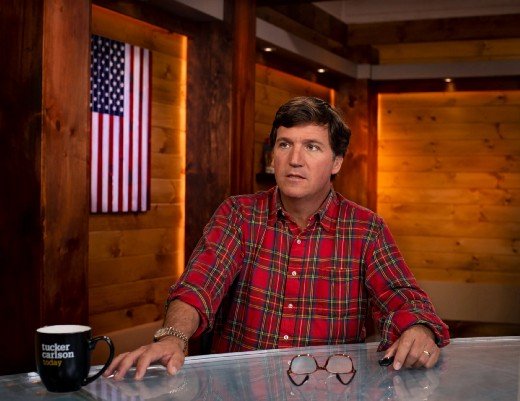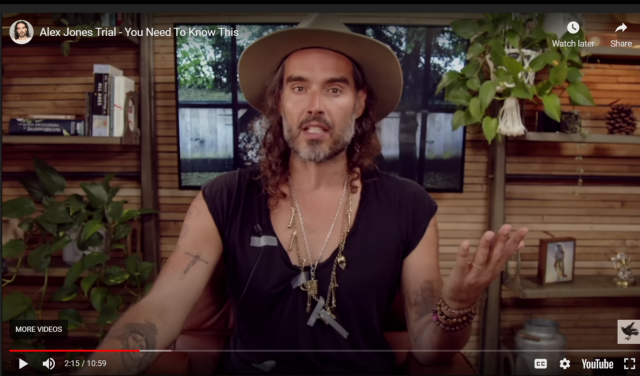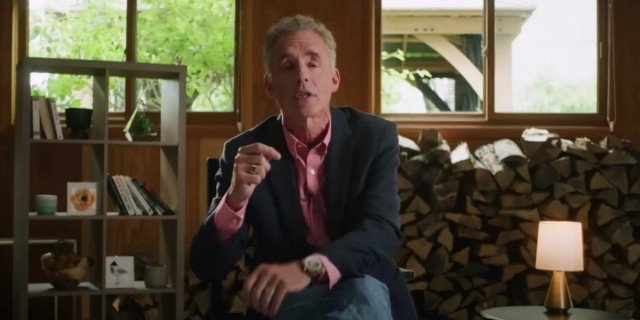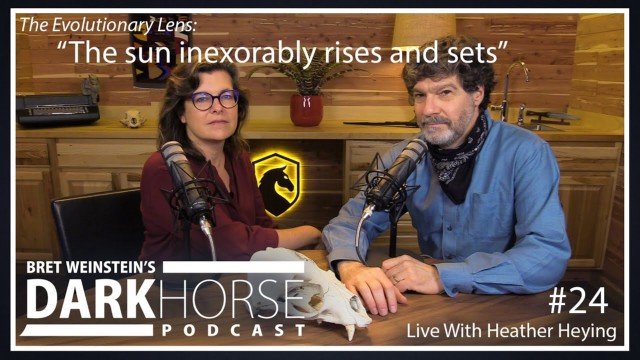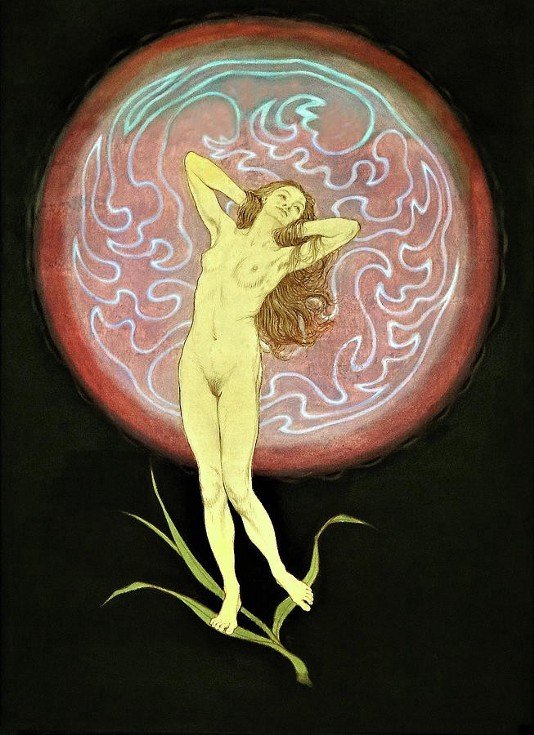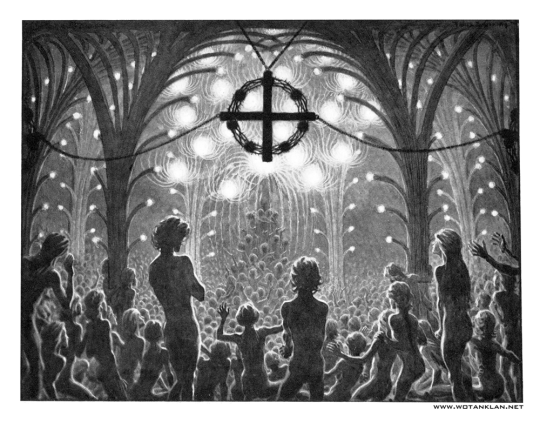Conspirituality 2022
This is the text of a talk I gave at Medicine festival in August 2022, summarising research I and others have done in the last three years on conspiracy thinking in New Age spirituality.
I’m going to talk about ‘conspirituality’ — the overlap between new age spirituality and conspiracy thinking, especially during the pandemic
I’m a writer, academic historian and spiritual seeker, I’ve been into alternative spirituality since I was a teenager. But in the last three years I’ve felt very disenchanted and turned off by what I’ve seen happen in our culture: the spread of conspiracy thinking. If you have too, you’re not alone.
It’s happened all over the world. Wherever there is a New Age hot-spot, you’ve seen a mushrooming of conspirituality — in Sedona and Santa Monica in the US, in Byron Bay in Australia, in Tulum in Mexico, Ibiza in Spain, in Glastonbury and Totnes in the UK. It’s driven me to join a Facebook group called Hippy Fatigue Syndrome, just to find solidarity in my disenchantment.
However, I’m not going to go on a rant because I recognize there are two sides to the story.
Everyone has found the last three years hard — it’s been very polarizing for this culture (new age / spiritual / conscious or whatever), especially over vaccines. Friendships have been strained and sometimes broken — it’s tested our community’s ability to contain differences and get on with each other.
I know many here won’t share my view, in fact, it’s probably a minority view here. I will try to tread lightly and respect the plurality of opinion here
2) The rise of conspirituality in 2020
We had our first lockdown in the UK in March 2020. And very quickly, I noticed people sharing conspiracy theories about the pandemic online — especially spiritual influencers and leaders in our community.
I saw them sharing the documentary Plandemic, which came out incredibly quickly — suspiciously so! I also saw spiritual people sharing the Pizzagate documentary Out of Shadows. Suddenly David Icke was back in the mainstream, with spiritual people sharing his interviews blaming the virus on 5G and, inevitably, the lizard people.
And as the pandemic went on, we saw spiritual people sharing memes and content related to the Qanon conspiracy. As improbable as it sounds, this far-right conspiracy theory started to get shared a lot by yoga moms, in what was called pastel Qanon.
I was shocked, which in retrospect was very naïve of me. So I tried to understand the phenomenon, and that led me to the concept of conspirituality.
3) The history of the concept of ‘conspirituality’
The term was first introduced by a British anthropologist called Charlotte Ward, in a paper she wrote in 2011, co-authored with her supervisor David Voas. Ward noticed:
a rapidly growing web movement expressing an ideology fuelled by political disillusionment and the popularity of alternative worldviews.
People in the movement shared two core convictions, Ward suggested:
1) a secret group covertly controls, or is trying to control, the political and social order, and 2) humanity is undergoing a ‘paradigm shift’ in consciousness…Proponents believe that the best strategy for dealing with the threat of a totalitarian ‘new world order’ is to act in accordance with an awakened ‘new paradigm’ worldview.
In other words, we need to wake up, ascend to a higher consciousness, and overthrow our demon overlords.
The concept was discussed again in a 2015 journal article by Asprem and Dyrendal. And then I was the first to resurrect it to make sense of what was happening in the pandemic. My piece in April 2020 inspired Derek Beres to start a podcast on the topic, called Conspirituality, which he has been running ever since with co-hosts Matthew Remski and Julian Walker. The rise of conspirituality during the pandemic is now much discussed in articles, documentaries, and academic journals.
4) Why is there this overlap between New Age culture and conspiracy thinking?
There are psychological factors and cultural-institutional-political-economic factors. I’ll begin with the psychological factors some researchers have suggested:
a) Both spiritual people and conspiracy theorists have been found, in some studies, to score high in ‘schizotypy’, which is a psychological concept to describe people who are prone to unusual or even psychosis-like experiences and beliefs (such as in telepathy, ghosts, energy healing, and so on). The psychologist who developed the concept insisted there is such a thing as ‘benign schizotypy’ — it can be very creative to think in unusual ways or to be open to unusual experiences. But it can make one prone to quite far out ideas.
I was recently at a seminar where I met a leading academic researcher on shamanism. We were discussing the Ukraine war and he confided to me that the man claiming to be Putin was actually a double. In fact, he was a double of the first double. That is quite an unusual belief.
b) Spiritual people and conspiracy theorists are also prone to something called ‘patternicity’, also sometimes called ‘apophenia’. This is a psychological trait in which you are prone to seeing hidden patterns and connections in random phenomena, synchronicity, signs and wonders.
Again, it can be very useful to see patterns and connections where most don’t. But it can lead one astray. I wrote about the Qanon shaman after the January 6 riot in the Capitol, and analysed some of his social media posts. He often shared memes where he saw shapes in clouds — the hand of God for example. But he also shared videos of himself driving around Phoenix, and seeing secret (or not so secret) paedophile symbols in shop and restaurant signs.
c) New age people tend to put a massive emphasis on their intuition, on what feels true and what resonates. This is a legacy of Romanticism, which reacted to the materialist enlightenment and the triumph of rationality by re-asserting the importance and validity of other ways of knowing: imagination, intuition, feeling, ecstasy. It’s good to be open to multiple ways of knowing. But if you’re solely relying on your intuition and ignoring the advice of experts, you’re going to go wrong.
d) Both spiritual people and fans of conspiracies are drawn to secret knowledge — we like to think of ourselves as the gnostic elite, the special ones who are initiated into esoteric wisdom (esoteric means ‘for the few’). We like to feel special — studies suggest both spiritual people and conspiracy theorists can score high in narcissism.
The New Age grew out of Protestantism and dissident Christianity. Spirituality has always been quite dissident. We’re into alternative wisdom, alternative health and medicine, alternative media, and alternative models of reality. We’re quite libertarian, so the New Age was never going to react well to a pandemic, a vaccination programme and public health controls on our freedom.
It can be useful and healthy to be a freedom-loving rebel who marches to the beat of their own drum BUT it can lead to rejection of mainstream accounts just because they’re mainstream. If the government said ‘take ivermectin and don’t take vaccines’, hippies would have done the opposite. CNN and the US government is support Ukraine? It must be a conspiracy. So you end up with New Age hippies becoming useful idiots for Russian propaganda, spreading the Kremlin-created meme that the war was to defend the world from Ukrainian biolabs for example. At least one New Age influencer — Holocaust-denying 5G-attacking anti-Semitic guru Sacha Stone — claims to be directly working with Russian intelligence. Who knows, he certainly spouts their propaganda.
This tendency towards libertarian individualism can mean emphasizing the personal over the collective. I interviewed Stephen Dinan, founder of the Shift Network, one of the biggest New Age companies in the US, and he went through a sort of dark night re-evaluation of our culture during the pandemic. And one of the things he complained about was what he called the ‘flowboy’ phenomenon. He writes:
The Flow Boy is often exceptionally good at dancing, romancing, and wandering the world. They often do so well into their fifties. They eschew commitments, often champion polyamory and economically don’t tend to build much of enduring value. They pride themselves on how conscious they are but when it comes to employment, family, or institutional or civic responsibilities, they are basically evasive. Their freedom is defined by their ability to follow the impulse of the moment. The dance and festival scene is filled with folks like this and there’s a great lament among spiritual women that there simply aren’t enough solid, reliable men to go around.
So what happens when a global pandemic comes along that demands the ability to constrain movement, activities, and socializing in the service of protecting the most vulnerable and slowing the spread? The Flow Boy blows it off, calls it a hoax, dabbles in conspiracy memes, dismisses the “control” of the mainstream or generally just keeps doing what he wants. And, in doing so, he contributes to endangering many lives.
I’m pretty sure I’m a flowboy, by the way, although alas I’m not an exceptional dancer.
I should add here that New Age libertarianism often leads to endless harping on about ‘sovereignty’. In practice this can mean a form of ableism, where you glory in your natural vitality and don’t care about people more vulnerable than you. At the extreme it leads to the bizarre sovereign citizens movement where you don’t recognize the state or any legal constraints on your actions.
e) New Age seekers (like me) and conspiracy theorists score high in absorption and mythological thinking
All humans are mythological animals. All of our models of reality are shaped by myths. That’s why we love stories, fantasies, epics. But some people really love fantasies, get very absorbed into them, and lose the ability to tell fiction from reality.
The Stanford anthropologist Tanya Luhrmann, who I interviewed last year, has developed the concept of ‘absorption’, to describe people with the capacity to get highly absorbed into inner worlds, such as stories. Such people are much more likely to have spiritual experiences like hearing the voice of God. And they’re likely to get drawn into what she calls ‘paracosmic fantasies’ — which are alternative fictional or symbolic worlds, which might be shared with others.
Theosophy, for example, which is a New Age movement that started in the late 19th century, was invented by a Russian woman, Madame Blavatsky, with a fantastical imagination, and she weaved a paracosmic fantasy which thousands of people have since got absorbed into and really believed. Theosophy has an occult view of history, which Blavatsky got from fantasy novels. Behind the scenes, history is actually driven by occult forces — by a good ‘white lodge’ and an evil ‘black lodge’, battling it out. A similar kind of occult theory of history can be found in the Qanon conspiracy, which sees global events as a fight between ‘white hats’ and ‘black hats’, pulling strings behind the scenes.
f) Ecstatic optimism and paranoid pessimism
This occult view of history leads to the two moods one finds in New Age spirituality: ecstatic optimism and paranoid pessimism.
The first mood is ecstatic optimism. Humanity is about to evolve into a new species or a new Age of Love, a new rapture. You and your friends are at the forefront of this evolution, the Universe is working through you, everything is connected, everything is happening at is should happen.
But then the Age of Love doesn’t dawn. And you’re left asking why. This leads to the second mood: paranoid pessimism. Something or someone is preventing humanity’s ascent. Some group acting behind the scenes and blocking us. It could be Freemasons, Jews, Lizard people, or demonic forces. THEM. They control everything. Everything is connected and we are at THEIR mercy.
So on the one hand you have a vision of total magical empowerment — where you just have to shift your mind and humanity is spiritually liberated. And on the other hand you have a vision of total enslavement, where THEY control everything and you are at their mercy. Both are equally childish black-and-white, medieval views which avoid the grind and compromise of modern politics. It blames all evil on a particular group — the Jews usually — and concentrates all goodness in an equally small group — you and your fellow cultists.
There is a long history of this sort of conspiracy thinking in the ‘cultic milieu’, going back to late-19th-century Theosophy. It was a Theosophist, Yuliana Glinka, who helped to spread the forged Protocols of the Ellders of Zion into Russian society. You get conspiritualist thinking in the leadership of the Nazi party, also through the Protocols and other anti-Semitic texts, and these same texts re-appear in UFO culture, where the evil Jews morph into Alien Lizards (as I wrote about here).
g) Conspiracy theories as online religions providing meaning, certainty and community
Why should someone believe a theory that is so disempowering? Well, in a funny way it gives one a sense of control and certainty — you have a Theory of Everything, which connects and explains Everything. It is unfalsifiable — any evidence to the contrary is flat-out denied or becomes part of the conspiracy. It’s a sort of religion — piecing together the conspiracy gives you Meaning, Purpose, and a Community. The pandemic and the lockdowns separated us from normal forms of community, so people came together online in these new virtual forms of religious community, in a kind of psychotic Wikipedia, weaving their paracosmic fantasies together. They felt afraid and alone but at least they had something they were building together.
h) Finally, early trauma seems to make people prone both to spiritual experiences and beliefs and to conspiracy thinking
Jake Angeli, the Qanon shaman, said he was made to smoke drugs when he was a kid by his father. And that was the moment he realized he was a ‘starseed’ — an alien from another planet. In other words, his father did something abusive to him, and he dissociated so massively he took refuge in an alternate reality. Trauma makes you continually prone to dissociation and to mythical black-and-white thinking — you project your wounds onto the world and turn it into an apocalyptic fantasy of the Evil Persecutors (the Illuminati, aliens or whatever) and the heroic resistors.
5) And then there are cultural and institutional factors behind conspirituality.
a) The New Age is a free market competition for attention
The New Age is a de- institutionalized and de-centralized market-place. There’s no centralized authority, no Pope or board of control. If you’re a vicar, you get paid by the church. If you’re a spiritual wellness ‘influencer’ you’re out there on your own, hustling, grinding. There is a strong incentive to win people’s attention by hyping the new thing, or the ancient secret wisdom.
If at this festival, there’s one tent with the talk ‘why vaccines are good’ and another ‘how to activate your DNA, clear all ancestral trauma, channel aliens and discover the secret to incredible health and abundance NOW’, you’re going to go to the second tent.
b) Wellness influencers have a financial motive in scaring you off mainstream health and selling you on alternative health
The New Age arose out of ‘border science’. It has long been a petri dish for alternative health remedies, from whole foods to hydrotherapy. That’s led to some valid and now scientifically proven remedies. But there is also a long history of anti-vaccine sentiments and snake oil treatments. That’s why celebs drawn to New Age alternative health like Novak Djokovic are likely to be anti-vax as well.
In the alternative media space, many influencers have a financial interest in scaring people off mainstream medicine and instead getting them into alternative and unregulated health. Wellness influencers like Dave Asprey (who I wrote about here) and conspiracy theorists like Alex Jones make a huge amount through selling supplements, which aren’t regulated by the FDA. Jones made $165 million in three years selling supplements and prepper gear for the apocalypse. This is the real ‘red pill’ they want you to take.
c) Audiences get radicalized by internet algorithms, and so do influencers
It’s very easy to go down rabbit holes on the internet, because the algorithms of Instagram, TikTok, YouTube, Twitter and so on are designed to keep you engaged. People have got radicalized into cults without ever being ‘groomed’ by the cult-leader — the YouTube algorithm did the work of repetition and reinforcement.
And what we saw during the pandemic was wellness influencers also getting radicalized by the algorithm. There were instances of yoga influencers starting to share anti-lockdown memes (the lockdowns after all were undermining their businesses) and then drifting into Qanon memes and hashtags, and suddenly receiving thousands of likes. The more they shared conspiritualist content, the more likes they got.
This is basically what happened to Jordan Peterson, Brett Weinstein and Russell Brand in the last two years — they have got swept up in a wave of likes and ended up with Tucker Carlson in the log-cabin at the end of the world.
The log-cabin at the end of the world: Tucker Carlson, Russell Brand, Jordan Peterson, Brett Weinstein and the Unambomber
d) How could the New Age ever get into far-right content? It’s happened before
The New Statesman clocked the overap back in 1995
People were befuddled that New Age hippies should get sucked into a far-right anti-globalist conspiracy like Qanon, which one would more associate with Christian fundamentalists. But there is a long history of overlap between the New Age and the far right. I have written a lot about this, particularly looking at the German occulture in the decades before the rise of Nazism.
There was a spiritual revival in Germany in the first years of the 20th century, like the ‘Life-Reform’ movement, which rejected modern urban industrial civilization as soulness and sought alternatives in ‘natural living’, vegetarianism, whole foods, nudism, camping and trekking, nature worship, occult fellowships, border science, Germanic paganism and eclectic spirituality. People in this movement were drawn to mythical thinking and magical solutions, they expected the German soul to rise up and save the world, and the German volk to re-find its wholeness. There was also an expectation of a Messiah figure who would redeem Germany and all of humanity. Many figures in this spiritual revival ending up joining the Nazi party and seeing Hitler as this Messiah, who was channeling cosmic forces and would expel the demons (Jews) to make Germany a millenarian paradise. I wrote about this in my September 2020 piece Nazi Hippies.
Three works by Fidus, German artist of the occult revival of the 1900s, who joined the Nazi party in the 1930s
This is why the secular left has, since World War Two, often been suspicious of spirituality — it is seen as irrational, as prone to magical solutions, cult worship, a tendency to authoritarianism, spiritual racism, and a rejection of modernity and science.
e) The New Age has an incredibly Romantic idea of ‘nature’
The New Age grew out of Romanticism, which in turn was a reaction to modern industrial urban capitalism. Like Romanticism it tends to see ‘Nature’ as pure, unsullied, eternal, utterly benevolent, and modern scientific urban civilization as corrupt. It also, like Romanticism, idealizes what Rousseau called the ‘noble savage’ — all indigenous customs are wise, all shamans are good, and so on.
I met a ‘psychedelic healer’ in Costa Rica, who thought all vaccines were dirty, polluting, industrial, Big Pharma, basically BAD. But she also thought all psychedelic drugs were plant-spirit allies, even MDMA. If you had a bad trip, the cure was to take more of the plant-medicine until you learned what the spirit was telling you. So why is one chemical soulless and always bad, but another chemical is a spirit-ally and always good?
Like I said, there have been times in the last three years where I felt utterly disenchanted with the New Age. I saw on YouTube a protest against lockdowns and vaccines in Glastonbury, involving ‘shamans’ banging their drums on Glastonbury Tor, to dispel the evil spirit of the vaccines, then parading through the town like medieval flagellants. And it made me think, this isn’t my culture, this is an anti-modern carnival of ignorance.
Hippies expelling the demons of vaccines
You can get this belief in the New Age, ‘we are Gods’. And it can lead to a lack of humility, including a lack of epistemic humility. You get this noxious perspective: ‘I’m special, I’m better than you, I don’t have to obey your ignorant rules’. It’s a selfishness — there’s often no real moral code beyond follow your bliss — plus an overweening ignorance plus a sense of moral superiority. That’s a toxic cocktail.
And I feel this culture is just woefully unprepared to meet the complexities of modern life — it retreats from modernity to the forest …except unfortunately it continues to spread its mystical ignorance online
Obama has said conspiracy theories are a serious threat to democracy. Alex Jones played a central role in the January 6 riot, this guy said the Sandy Hook school shooting was a hoax, that the bereaved parents were actors, so that they were then harassed by his millions of followers. Yet you have Russell Brand, Britain’s most popular spiritual influencer, defending him.
Our culture prides itself on being more conscious, more evolved…But at the moment it’s regressive, it’s muddying the water, it’s making things harder for our species.
6) What’s the counter-narrative?
It’s true that COVID led to a massive expansion of state power in most countries around the world, and infringement of individual liberties. It’s also true it led to health hysteria, and the rushing through of rules and health provisions, some of which may turn out to have been pointless or even harmful. Vaccines do sometimes have side effects, and there’s a strong argument for respecting people’s bodily autonomy and right to choose their own medicine. In this environment, you need space for alternative views, alternative media, alternative truths.
There are many conspiracy theories, marginalized ideas or forbidden knowledge that turned out to be true. UFOs seem to be real. There was widespread and systemic child abuse in institutions like the Catholic Church. Big Pharma did suppress evidence of the harm anti-depressants can sometimes cause.
Conspiracy theories, and even Trumpism, did not arise in a vacuum. They arose at a moment when trust in ruling elites and in institutions is at historical lows, for good reason. The last two decades has seen catastrophic and incredibly expensive failed wars in Iraq and Afghanistan, a financial crisis where Wall Street got bailed out by tax payers, rising climate change and immigration. We know that the elite do often behave very badly and assume they can get away with it (like Jeffrey Epstein and Prince Andrew). We also know that, historically, scientists and doctors have not always acted according to the Hippocratic Oath, that they have often alas used humans as guinea pigs without their consent.
And there’s also so much that’s good in New Age culture — its commitment to the environment, its openness to exploring consciousness, its lack of sexual bigotry.
7) Conclusions: telling the probable from the improbable
So what are possible solutions to New Age ‘conspirituality’?
First, are there ways we can distinguish a probable from an improbable conspiracy theory?
Is it falsifiable? Does it make claims we can scientifically investigate? Can we seek not just evidence that supports it, but evidence that goes against it? Does it hold up in public debates? What’s the best argument against the theory?
Does the theory seek to explain everything, that everything is connected in one Grand Plot? Does it pre-suppose a massive and superhuman amount of coordination and subterfuge by a small group? That should be a big Red Flag. The closer you get to the political elite, the more you see how incompetent it is.
Can we hold our theories lightly, rating them as probable or improbable out of 100, and being open to changing them, rather than clinging to them like comfort blankets in uncertain times?
Can we accept our lack of expertise in certain areas, and be prepared to follow the scientific consensus (while accepting that consensus might change)? Can we evaluate the expertise of a person to opine in a particular area?
Can we accept the alternative isn’t always true just because it’s the alternative? That alternative news sources also have their financial incentives?
Finally, can we find a synthesis for ancient wisdom and modern science?
I implore my culture, don’t turn away from the modern. Don’t become a celebration of the dark ages. New Age spirituality was born as an attempt to marry science and spirit — we need to continue that attempt today.





